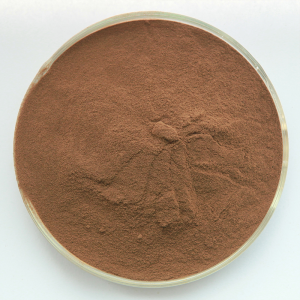
Lignosulfonates (often abbreviated as LS) are byproducts of sulfite pulping and were among the first dispersants used as an admixture in concrete. Lignosulfonates are recovered from sulfite pulping spent pulping liquids (red or brown liquor). In addition, ultrafiltration can be used to separate lignosulfonates from spent pulping liquid. There is a list of CAS numbers for the various metal salts of Lignosulfonate Malaysia.
Since the 1930s, lignosulfonates have been used as plasticizers or water reducers. When mixed with concrete, they have the advantage of slowing the setting time and reducing the amount of mixing water required. Furthermore, their use has resulted in improved workability of plastic concrete during formwork placement and increased air entrainment. As a byproduct of the pulping industry, lignosulfonates are inexpensive, and despite their limited performance, they have a wide range of applications for improving concrete quality.
Until now, the only lignin products obtained from the pulping process that have found a wide range of applications are lignosulfonates. These are non-hazardous materials with outstanding properties that are used as binders, emulsifiers, and dispersants in a wide range of applications.

As low-cost binders, lignosulfonates are widely used in commodities such as coal briquettes, ceramics, mineral dust briquetting, and the production of plywood or particle boards. Because of their ability to retain moisture and suppress dust, they are useful in construction, gravel roads, airports, and sports facilities.
Lignosulfonates are used in concrete mixtures, ceramics, gypsum board production, and leather tanning as an anti-settling agent that also prevents lumping. Lignosulfonates give cement flowability and plasticity. This is a less expensive alternative to more expensive materials that provide set retardation, such as superplasticizers, gluconates, and gluconic acid. Lignosulfonates are used in wet-process Portland cement mills to increase the solids content of raw slurries.
Lignin-based concrete additives are in high demand, with aqueous solutions fetching up to $1.05-$1.32/L. Sulphur-free lignin, such as soda lignin, has also been shown to improve mortar flowability. Lignosulfonates can also be used to stabilise immiscible fluid emulsions such as asphalt emulsions, pesticide preparations, pigments, and dyes. They can be used as binders in animal feed and thus improve the feed properties of pellets due to their low toxicity. Furthermore, lignosulfonates have the ability to keep micronutrients in solution, which is useful for micronutrient transport as well as as a cleaning and decontaminating agent in water and soil.

Because of the potential environmental concerns associated with chromium counterparts, chrome free lignosulfonate is increasingly being used in aqueous drilling fluids. A basic design study of a chrome-free lignosulfonate revealed three major reaction parameters influencing its performance: complexed metal ion type and concentration. oxidation level at optimal pH and raw lignosulfonate liquor The plant scale-up of a new chrome-free lignosulfonate formulation based on titanium metal ion was completed. In various water-based drilling fluid applications, testing of the new titanium-complexed lignosulfonate revealed improved rheological control over other available chrome-free lignosulfonates.
More than 30 years ago, chromium-based lignosulfonates were introduced to the drilling industry. Since their initial introduction, they have been used continuously as water-based mud additives. King described a drilling-fluid additive formulated with metal ions such as chromium, iron, and aluminum during early development work with lignosulfonates. and used lignin liquor The drilling industry has used chromium-based lignosulfonates successfully as drilling fluid additives in a wide range of drilling environments and temperatures.

Recent Comments